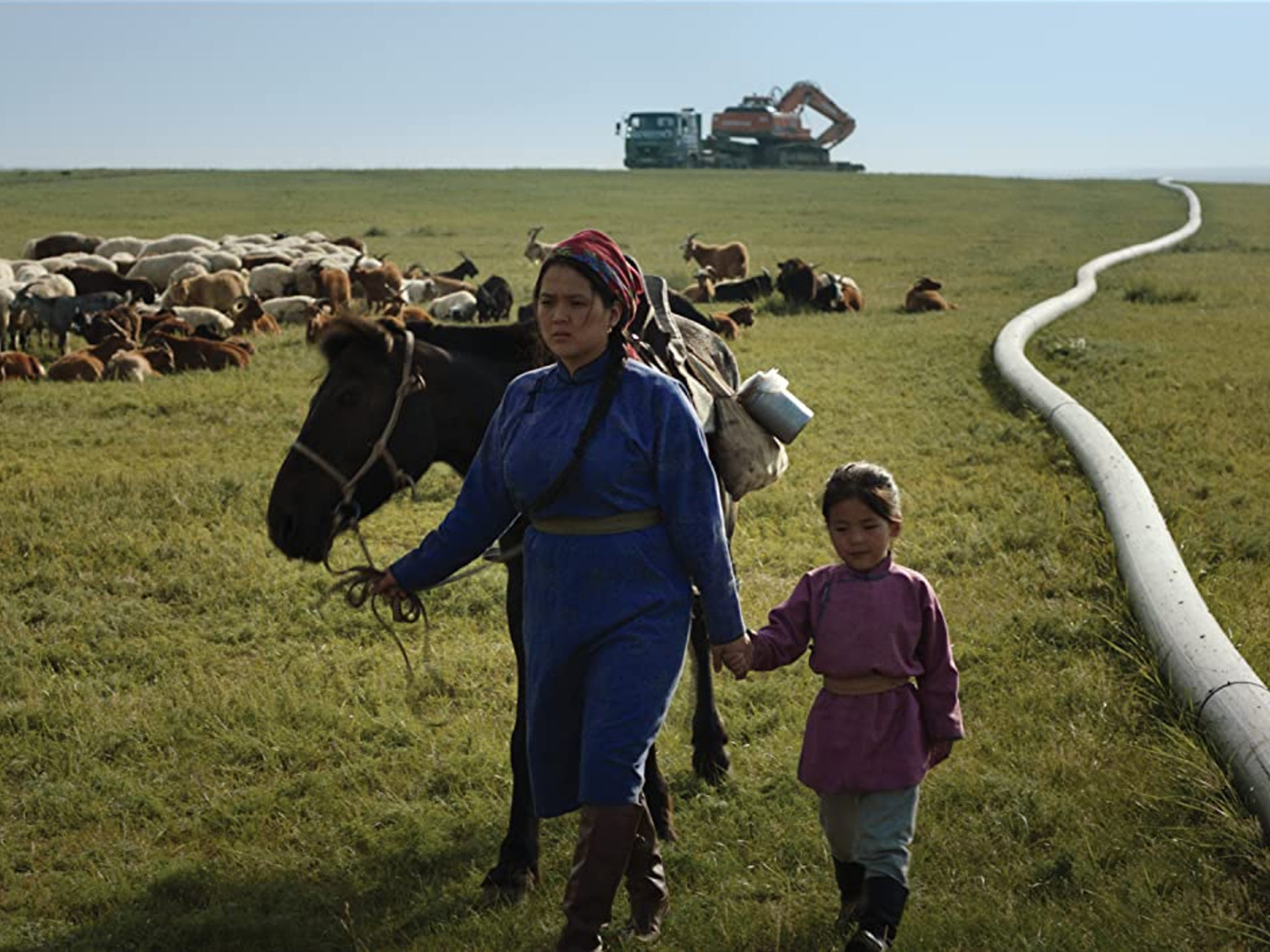
- Film
New Asian Cinema: Veins of the World (Mongolia)
Munich-based Mongolian filmmaker Byambasuren Davaa’s documentary The Story of the Weeping Camel was an Oscar nominee in 2005. The film has a very rare theme. It takes place in the Gobi Desert when a camel gives birth to a white calf. The group of nomadic camels reject this oddly looking newborn and his own mother refuses to nurse him. To save its life, Mongolian nomads send two boys to cross the desert and find a musician in the village who may use songs to make the camels accept the new calf.
Byambasuren Davaa’s films often focus on the preserved traditions and mundane life of Mongolian nomads, featuring amateur actors who usually play themselves. In 2020, Byambasuren’s new drama feature Veins of the World premiered at the Berlin Film Festival and was nominated for a Crystal Bear award.
Veins of the World centers on Amra (Bat-Ireedui Batmunkh), an 11-year-old Mongolian boy who lives in a vast grassland with his mother Zaya (Enerel Tumen) and father Erdene (Yalalt Namsrai). Amra’s childhood has been simple and uneventful. He likes to sing, and his dream is to participate in Mongolia’s Got Talent. Zaya farms livestock and Erdene makes a living off selling cheese at their local market. However, their peaceful life of nomads comes to an end when mining companies flock to their land for gold. Erdene leads his people to stop the mine’s encroachment and tragically dies in a car accident. Feeling powerless and hopeless, Zaya gives up and plans to move Amra and her younger daughter to the city for a new life. But Amra decides to follow in the footsteps of his father and fight for their homeland.
Reflecting on the conflicts between massive mining companies and the local people, Veins of the World tells the story through Amra’s point of view. With its own version of authenticity, the film examines the vulnerability of the Mongolian steppe and the tenacity of its community. Director and co-writer Byambasuren Davaa pairs Amra’s innocence with the breathtaking beauty of Mongolian nature, gently blurring boundaries between documentary and fiction. Lebanese cinematographer Talal Khoury helmed the striking widescreen cinematography.
Veins of the World is a German-Mongolian co-production produced by Basis Berlin who also made Byambasuren’s previous film The Story of the Weeping Camel. In the late 1990s, as Mongolian film productions lost government funding, Mongolian filmmakers had to seek partners overseas, which gave birth to several commercially and critically successful films, such as the first Mongolian-Japanese co-production Genghis Khan, Under Power of the Eternal Sky and Belgian-Mongolian co-production State of Dogs.

